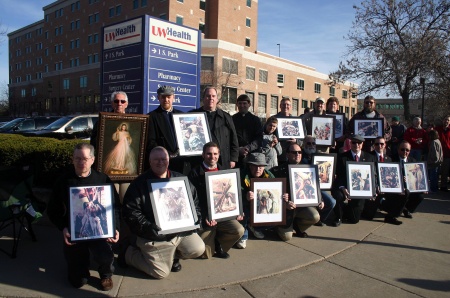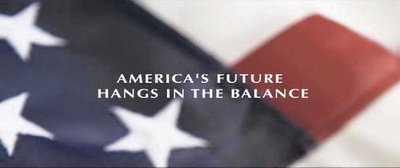
LifeSiteNews is reporting this …
SPISSKE, PODHRADIE, Slovakia, August 25, 2010 (LifeSiteNews.com) – MUST READ Excerpts from Denver Archbishop Charles Chaput’s address to the 15th symposium for the Canon Law Association of Slovakia on Tuesday:
Today’s secularizers have learned from the past. They are more adroit in their bigotry; more elegant in their public relations; more intelligent in their work to exclude the Church and individual believers from influencing the moral life of society. Over the next several decades, Christianity will become a faith that can speak in the public square less and less freely. A society where faith is prevented from vigorous public expression is a society that has fashioned the state into an idol. And when the state becomes an idol, men and women become the sacrificial offering.
We face an aggressively secular political vision and a consumerist economic model that result – in practice, if not in explicit intent — in a new kind of state-encouraged atheism.
To put it another way: The Enlightenment-derived worldview that gave rise to the great murder ideologies of the last century remains very much alive. Its language is softer, its intentions seem kinder, and its face is friendlier. But its underlying impulse hasn’t changed — i.e., the dream of building a society apart from God; a world where men and women might live wholly sufficient unto themselves, satisfying their needs and desires through their own ingenuity.
This vision presumes a frankly “post-Christian” world ruled by rationality, technology and good social engineering. Religion has a place in this worldview, but only as an individual lifestyle accessory. People are free to worship and believe whatever they want, so long as they keep their beliefs to themselves and do not presume to intrude their religious idiosyncrasies on the workings of government, the economy, or culture.
Now, at first hearing, this might sound like a reasonable way to organize a modern society that includes a wide range of ethnic, religious and cultural traditions, different philosophies of life and approaches to living.
… how does the rhetoric of enlightened, secular tolerance square with the actual experience of faithful Catholics in Europe and North America in recent years?
In the United States, a nation that is still 80 percent Christian with a high degree of religious practice, government agencies now increasingly seek to dictate how Church ministries should operate, and to force them into practices that would destroy their Catholic identity. Efforts have been made to discourage or criminalize the expression of certain Catholic beliefs as “hate speech.” Our courts and legislatures now routinely take actions that undermine marriage and family life, and seek to scrub our public life of Christian symbolism and signs of influence.
In Europe, we see similar trends, although marked by a more open contempt for Christianity. Church leaders have been reviled in the media and even in the courts for simply expressing Catholic teaching.
The West is now steadily moving in the direction of that new “inhuman humanism.” And if the Church is to respond faithfully, we need to draw upon the lessons that your Churches learned under totalitarianism.
A Catholicism of resistance must be based on trust in Christ’s words: “The truth will make you free.”
Living within the truth means living according to Jesus Christ and God’s Word in Sacred Scripture. It means proclaiming the truth of the Christian Gospel, not only by our words but by our example. It means living every day and every moment from the unshakeable conviction that God lives, and that his love is the motive force of human history and the engine of every authentic human life. It means believing that the truths of the Creed are worth suffering and dying for.
Living within the truth also means telling the truth and calling things by their right names. And that means exposing the lies by which some men try to force others to live.
Our societies in the West are Christian by birth, and their survival depends on the endurance of Christian values. Our core principles and political institutions are based, in large measure, on the morality of the Gospel and the Christian vision of man and government. We are talking here not only about Christian theology or religious ideas. We are talking about the moorings of our societies — representative government and the separation of powers; freedom of religion and conscience; and most importantly, the dignity of the human person.
…we cannot dispense with our history out of some superficial concern over offending our non-Christian neighbors. Notwithstanding the chatter of the “new atheists,” there is no risk that Christianity will ever be forced upon people anywhere in the West. The only “confessional states” in the world today are those ruled by Islamist or atheist dictatorships — regimes that have rejected the Christian West’s belief in individual rights and the balance of powers.
I would argue that the defense of Western ideals is the only protection that we and our neighbors have against a descent into new forms of repression — whether it might be at the hands of extremist Islam or secularist technocrats.
But indifference to our Christian past contributes to indifference about defending our values and institutions in the present. And this brings me to the second big lie by which we live today — the lie that there is no unchanging truth.
Relativism is now the civil religion and public philosophy of the West. Again, the arguments made for this viewpoint can seem persuasive. Given the pluralism of the modern world, it might seem to make sense that society should want to affirm that no one individual or group has a monopoly on truth; that what one person considers to be good and desirable another may not; and that all cultures and religions should be respected as equally valid.
In practice, however, we see that without a belief in fixed moral principles and transcendent truths, our political institutions and language become instruments in the service of a new barbarism. In the name of tolerance we come to tolerate the cruelest intolerance; respect for other cultures comes to dictate disparagement of our own; the teaching of “live and let live” justifies the strong living at the expense of the weak.
This diagnosis helps us understand one of the foundational injustices in the West today — the crime of abortion.
I realize that the abortion license is a matter of current law in almost every nation in the West. In some cases, this license reflects the will of the majority and is enforced through legal and democratic means. And I’m aware that many people, even in the Church, find it strange that we Catholics in America still make the sanctity of unborn life so central to our public witness.
Let me tell you why I believe abortion is the crucial issue of our age.
First, because abortion, too, is about living within the truth. The right to life is the foundation of every other human right. If that right is not inviolate, then no right can be guaranteed.
Or to put it more bluntly: Homicide is homicide, no matter how small the victim.
Here’s another truth that many persons in the Church have not yet fully reckoned: The defense of newborn and preborn life has been a central element of Catholic identity since the Apostolic Age.
I’ll say that again: From the earliest days of the Church, to be Catholic has meant refusing in any way to participate in the crime of abortion — either by seeking an abortion, performing one, or making this crime possible through actions or inactions in the political or judicial realm. More than that, being Catholic has meant crying out against all that offends the sanctity and dignity of life as it has been revealed by Jesus Christ.
My point in mentioning abortion is this: Its widespread acceptance in the West shows us that without a grounding in God or a higher truth, our democratic institutions can very easily become weapons against our own human dignity.
Our most cherished values cannot be defended by reason alone, or simply for their own sake. They have no self-sustaining or “internal” justification.
There is no inherently logical or utilitarian reason why society should respect the rights of the human person. There is even less reason for recognizing the rights of those whose lives impose burdens on others, as is the case with the child in the womb, the terminally ill, or the physically or mentally disabled.
If human rights do not come from God, then they devolve to the arbitrary conventions of men and women. The state exists to defend the rights of man and to promote his flourishing. The state can never be the source of those rights. When the state arrogates to itself that power, even a democracy can become totalitarian.
What is legalized abortion but a form of intimate violence that clothes itself in democracy? The will to power of the strong is given the force of law to kill the weak.
That is where we are heading in the West today.
I suggested earlier that the Church’s religious liberty is under assault today in ways not seen since the Nazi and Communist eras. I believe we are now in the position to better understand why.
Writing in the 1960s, Richard Weaver, an American scholar and social philosopher, said: “I am absolutely convinced that relativism must eventually lead to a regime of force.”
He was right. There is a kind of “inner logic” that leads relativism to repression.
This explains the paradox of how Western societies can preach tolerance and diversity while aggressively undermining and penalizing Catholic life. The dogma of tolerance cannot tolerate the Church’s belief that some ideas and behaviors should not be tolerated because they dehumanize us. The dogma that all truths are relative cannot allow the thought that some truths might not be.
The Catholic beliefs that most deeply irritate the orthodoxies of the West are those concerning abortion, sexuality and the marriage of man and woman. This is no accident. These Christian beliefs express the truth about human fertility, meaning and destiny.
These truths are subversive in a world that would have us believe that God is not necessary and that human life has no inherent nature or purpose. Thus the Church must be punished because, despite all the sins and weaknesses of her people, she is still the bride of Jesus Christ; still a source of beauty, meaning and hope that refuses to die — and still the most compelling and dangerous heretic of the world’s new order.
The full 12-page talk can be read here.




 Posted by Fr. Richard Heilman
Posted by Fr. Richard Heilman 


 Two pieces of news have been passed on to me in recent days, both interesting on their own merits, but more so when considered together.
Two pieces of news have been passed on to me in recent days, both interesting on their own merits, but more so when considered together.